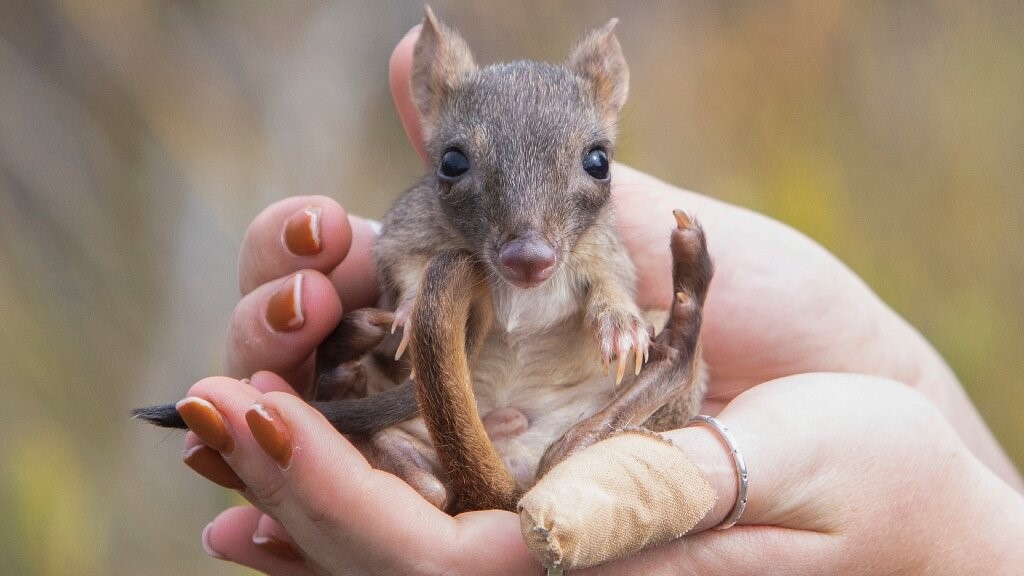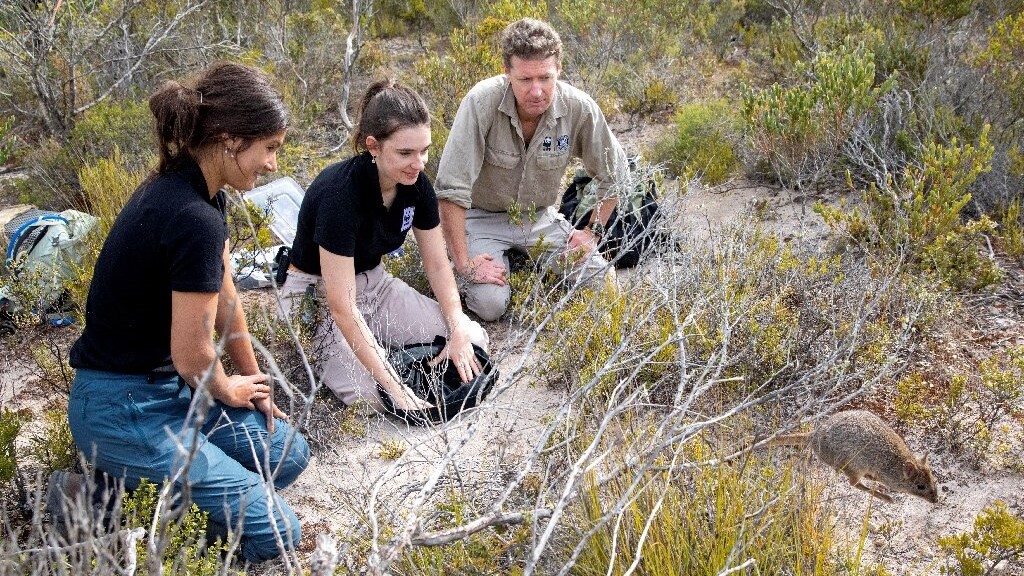'Mini kangaroos on steroids' make comeback in South Australia after disappearing for 100 years
The tiny marsupials have a penchant for peanut butter, which researchers have used to help them monitor and conduct health checks on the population.
Adorable marsupials that look like "mini kangaroos on steroids" are bouncing back in southern Australia after disappearing from the region for more than 100 years.
Brush-tailed bettongs (Bettongia penicillata), also known as yalgiri in the language of the local Narungga People, are energetic creatures that once hopped and darted across much of the Australian mainland. Over the last two centuries, their numbers have dwindled due to predation by foxes and feral cats, as well as habitat loss. Now only a few thousand survive in pockets of Western Australia, in sanctuaries and on islands. But recently, the mini marsupials have made a comeback in the south after being reintroduced by conservationists.
"They're like a little, ankle-sized kangaroo — a mini kangaroo on steroids if you like," Derek Sandow, an ecologist with the Northern and Yorke Landscape Board in South Australia, told the French News Agency (AFP). "They've got really powerful hind legs, they carry their young in their pouch, like a kangaroo does, but they're only a kilo and a half (three pounds)."
Sandow is part of a team of wildlife researchers that have tagged and reintroduced 120 brush-tailed bettongs to the Yorke Peninsula, near Adelaide, since August 2021, in the hope that the population might recover. The new arrivals were translocated from nearby Wedge Island and from the Upper Warren region of Western Australia and the latest release was coordinated with Noongar and Narungga Traditional Owners, according to WWF Australia.
"On the southern Yorke peninsula, we've actually got geography on our side," Sandow told ABC Radio Adelaide. "We've got a foot-shaped peninsula, ocean on three sides. We've built a predator management fence across the ankle, just to slow the movement of foxes and cats, but we're operating in a working landscape, so there's towns and farms, and we're trying to demonstrate that with a reduction of these threats, we can actually bring back these really vulnerable native species."
Related: Mammals with pouches are 'more evolved' than humans — sort of
Do you remember the bettongs or yalgiri of the Yorke Peninsula introduced over the past two years?Check out this video update!#MarnaBanggara #Landcare #RewildingAustralia #RegenerateAustralia @DCCEEW @AusLandcare pic.twitter.com/MgGLnhaDkrMay 22, 2023
Recent monitoring shows that the tiny, furry animals are thriving on the peninsula. The researchers trapped 85 brush-tailed bettongs and found that 40% were untagged, meaning they had been born since the reintroduction. Almost all the females they caught had young in their pouches. "We're getting great results," Sandow told ABC Radio Adelaide.
Get the world’s most fascinating discoveries delivered straight to your inbox.
Brush-tailed bettongs may be cute, but they are merciless when it comes to their young.
A female carrying a baby in its pouch will fling it out if a predator chases after them to divert its attention, sacrificing the joey so she can escape. "It sounds like horrible parenting," Sandow told AFP. Brush-tailed bettongs breed continuously and females can give birth to three young each year that each spend up to 98 days in the pouch. "They can basically have their baby ready to go in their back pocket, and then replace it," Sandow said.
If their populations can recover, these tiny marsupials could considerably re-shape and enhance the landscape, Sandow said. "A little bettong can move tons of soil per year. So they dig in the ground, they create little micro habitats for water infiltration for seeds to establish." Brush-tailed bettongs never drink water and stay away from green plants too, preferring fungus, bulbs, seeds, insects and resin.
To keep track of brush-tailed bettongs, the researchers have an unexpected trick up their sleeve. "Most native fauna — and the yalgi is no different — are a sucker for peanut butter," Sandow told ABC Radio Adelaide. "When we're actually trying to trap these animals to do health checks or do population sampling, peanut butter is our secret weapon."
The tiny creatures don't discriminate between smooth or crunchy, Sandow added.

Sascha is a U.K.-based staff writer at Live Science. She holds a bachelor’s degree in biology from the University of Southampton in England and a master’s degree in science communication from Imperial College London. Her work has appeared in The Guardian and the health website Zoe. Besides writing, she enjoys playing tennis, bread-making and browsing second-hand shops for hidden gems.




